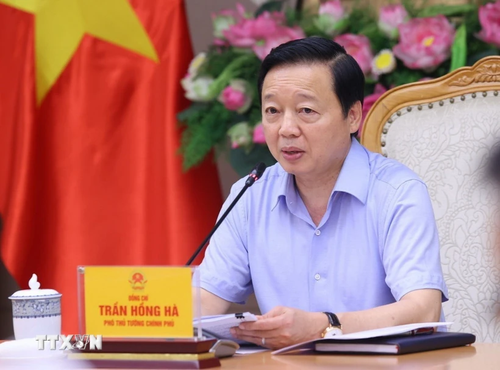 Deputy Prime Minister Tran Hong Ha (Photo: Van Diep/VNA) Deputy Prime Minister Tran Hong Ha (Photo: Van Diep/VNA) |
He highlighted the need for flexible, innovative, and breakthrough solutions in implementing the plan, and quickly adapting to and keeping up with global trends.
Under the latest draft, the carbon market will create a new financial stream for greenhouse gas emission reduction activities, promote green transition, develop low-emission technologies, foster a low-carbon economy, and proactively respond to climate change, aiming for net-zero emissions by 2050.
In the 2025-28 period, the carbon market will be piloted nationwide, carbon credits will not be sold abroad, and there will be no regulations for connecting or exchanging carbon credits domestically with regional and global carbon markets.
From 2029 onwards, the market will be officially operational nationwide. During this period, efforts will continue to build and better the legal framework and infrastructure necessary for connecting the domestic with regional and global carbon markets.
To that end, relevant ministries and agencies are tasked to jointly define the supply and demand of the domestic and international carbon markets and develop a legal framework for the calculation, measurement, and identification of trading products in the carbon market, such as greenhouse gas emission quotas and types of carbon credits.